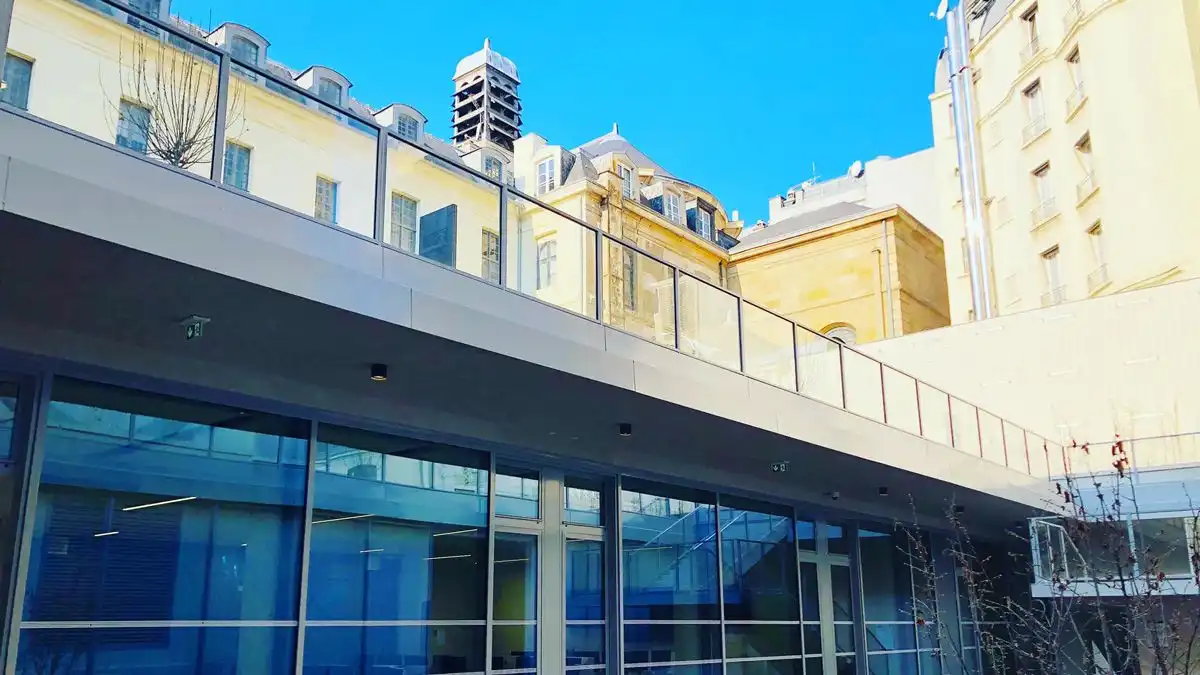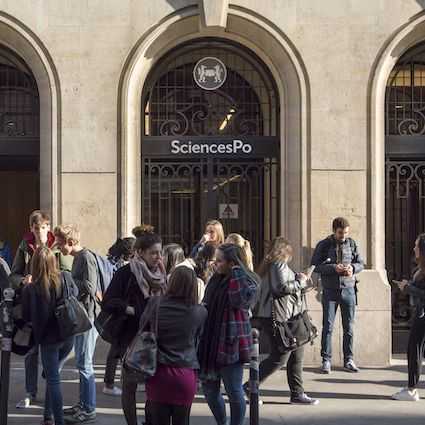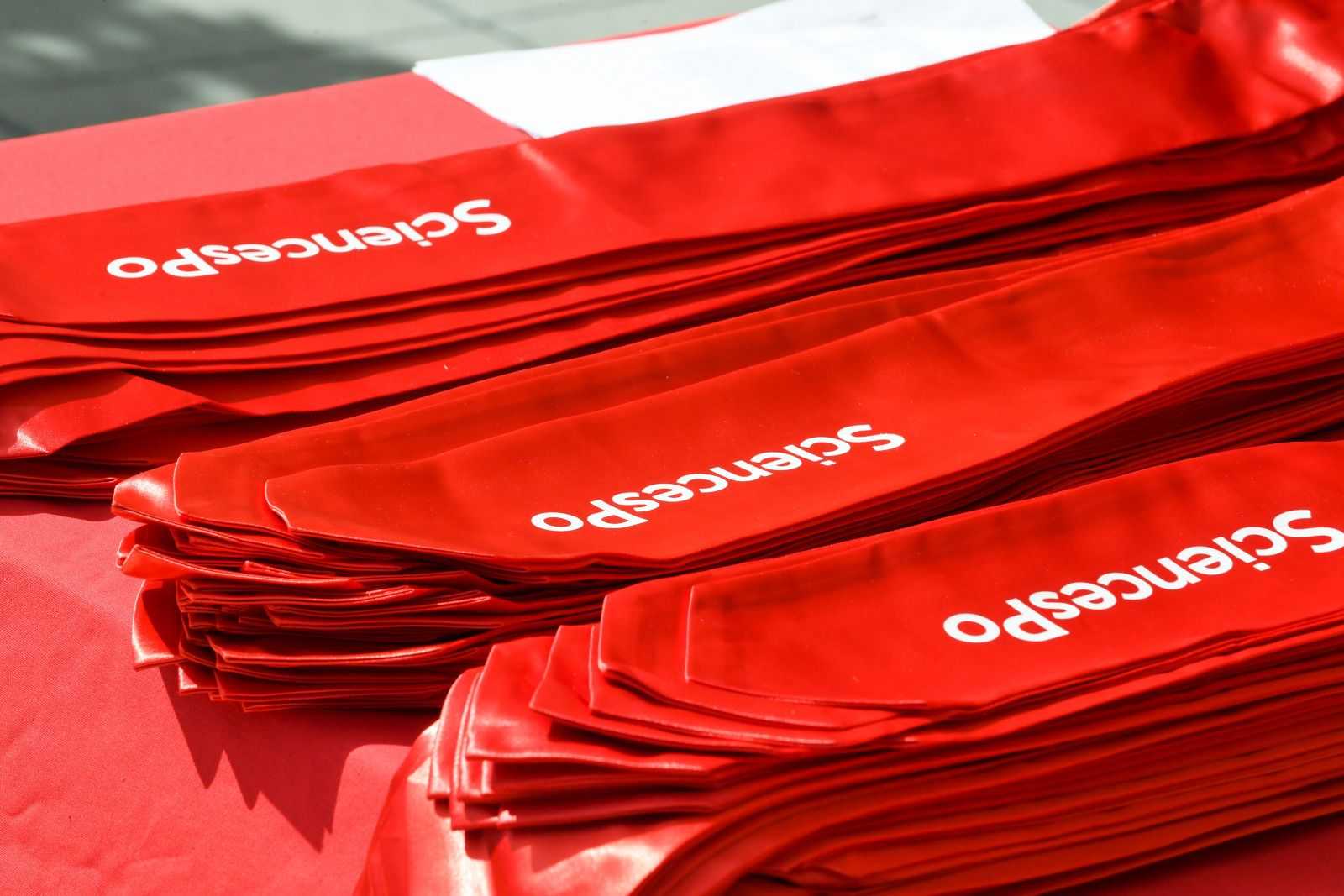
Home>Academics>At a glance
At a glance: The Sciences Po Journalism School Programmes
Sciences Po is an international research university, both selective and open onto the world, ranking among the finest institutions in the fields of humanities and social sciences.
Virtual Graduate Open House day, October 2025

On 18 October 2025: meet faculty members, students, and representatives from admission and student services and learn more about our Master’s programmes.
Sciences Po’s seven schools welcome graduate students from all over the world. Our graduate programmes provide students with both an in-depth academic background in the social sciences and hands-on experience of the professional field they aim to work in.
Sciences Po has been awarded the "Bienvenue en France" label by Campus France with the highest level of recognition. The label recognises the actions undertaken by the university concerning hospitality and support for international students.
Discover the Journalism School
The Sciences Po Journalism School was created in 2004, as the internet entered its second decade and the need to reinvent traditional forms of media became more urgent than ever. The school offers a new approach to journalistic training that is at once highly ambitious and ethical, digital and critical. A variety of courses and workshops are precisely structured so as to provide innovative training in the techniques of journalism, beginning with mastery of narrative and time-frame. Needless to say, being an excellent journalist requires talent; but excellent journalism is also a matter of rights, duties and social responsibility.
Our master's programmes

Study at the Journalism School is enriched by the experience of several well-known professional journalists. Throughout the course, students are encouraged to consider the major political, economic, social and environmental issues at the heart of international news.
Master in Journalism (taught in French)
Prioritising the facts, identifying the issues at play in any given event (economic, social, political, sports, etc.), drawing on a wide-ranging general knowledge, collecting relevant evidence and data, fact checking, surveying the field, talking to sources, handling both urgent reports and extended pieces: these and more are the skills taught at the Sciences Po Journalism School. Our ambition is simple: to train the finest journalists of the future.
> Learn more about the Master in Journalism
Joint Master in Journalism and International Affairs
This pioneering Master’s programme offers a unique training combining journalism and international affairs. The course is taught jointly by two Sciences Po Graduate Schools, over the course of two academic years split into four semesters. The Paris School of International Affairs (PSIA) provides excellent academic training in the field of international affairs, while the School of Journalism equips students with practical journalistic skills and advanced theoretical knowledge of the social sciences.
> Learn more about The joint Master in Journalism and International Affairs
Dual master's degree in Journalism with Columbia University (New York, USA)
In 2008 the Sciences Po Journalism School in Paris and Columbia University in New York joined forces to create the first dual degree between a French and an American school of journalism. This fully bilingual course fuses the best of both institutions to provide training in the methodology and best practices of French, European and English-language media. Its aim is to incorporate national and international newsrooms into one globalized labour market.
> Learn more about the Columbia / Sciences Po dual degree in Journalism
The gap year at École 42
All students at the Sciences Po Journalism School (including those on the Master in Journalism, the Master in Journalism and International Affairs and the dual degree with Columbia) can choose to complete a gap year at École 42 in Paris between the first and second year of their Master’s. This ground-breaking computer programming school allows students to immerse themselves for free in the world of coding and IT development.

Where do our alumni work?
The employment rate of graduates of the Sciences Po Journalism School defies market statistics (source: annual survey on 2005 to 2017 cohorts, response rate of 72%).
Job opportunities by sector
- 98% en poste dont 55% en CDI, 14% CDD, 22% en piges régulières
- Dont 30% à l’international
- 39% embauchés avant la fin de leurs études, dont 8% en CDI
- 29% image (télévision, production audiovisuelle, etc.)
- 19% journalisme numérique
- 14% presse écrite
- 10% agences de presse
- 8% multi-secteurs
- 8% univers du son
- 12% autre
Job opportunities by profession
Video journalist - Reporter - Presenter - Data journalist - Content producer (journalist) - Specialised journalist - Investigative journalist - Correspondent - Chronicler/columnist - Local news editor - Computer graphics specialist - Editor-in-Chief - Editorial Director



